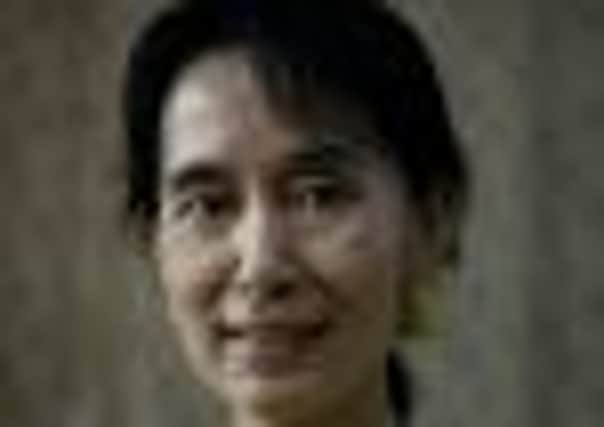Burma could come in from the cold after release of 651 political prisoners


President Barack Obama praised the release as “a substantial step forward for democratic reform”.
Among the 651 detainees freed were political activists, leaders of brutally repressed democratic uprisings, a former prime minister and relatives of former dictator Ne Win. State media described the presidential pardon as allowing them to take part in “nation-building”.
Advertisement
Hide AdAdvertisement
Hide AdIt was the latest in a flurry of accelerating changes in Burma. Yesterday, The Scotsman reported the signing of a ceasefire in a long-running campaign against Karen insurgents. That followed the start of a dialogue with opposition leader Aung San Suu Kyi and the legalisation of trade unions.
The US has not had an ambassador in Burma since downgrading its representation after a 1988 pro-democracy uprising was put down by the army.
But the Americans and their allies may take a wait-and-see approach on sanctions, to ensure government truces with various ethnic rebel groups stay in effect and that elections in April are free and fair.
Foreign Secretary William Hague was in Burma last week and US secretary of state Hillary Clinton visited the country in December. French foreign minister Alain Juppé is due to arrive there today.
Western leaders are encouraged by the reform process under president Thein Sein, but economic and political sanctions could not be lifted unless the prisoners were freed. The sanctions generally ban business with Burma, block financial transfers, especially by military backed leaders and their cronies, and deny visas to the same VIPs.
“I think we are close to the removal of western sanctions,” said Monique Skidmore, an expert at the University of Canberra in Australia. But she added: “There’s a sense that there’s still more to go before the sanctions will be removed.”
Those released yesterday included Min Ko Naing, a prominent student leader from the failed 1988 pro-democracy uprising. Cheers and applause erupted outside Thayet prison, where a huge crowd had gathered to see the charismatic activist, who had been serving a 65-year sentence.
Min Ko Naing’s most recent arrest came in 2007, along with 14 other student leaders, while protesting against the fuel price increases that preceded the monk-led Saffron Revolution, which was violently suppressed.
Advertisement
Hide AdAdvertisement
Hide AdActivists arrested in that uprising – named after the colour of the robes worn by the country’s Buddhist monks – were also freed. Among them was Shin Gambira, 32, a militant monk who helped lead the protests.
Win Tin, a senior member of Ms Suu Kyi’s party who had spent 19 years in prison but was released in a 2008 amnesty, said: “The release of such a large number of political prisoners demonstrates the government’s will to solve political problems through political means.
“This amnesty will ease political tension before the April election. The other major problem the government has to seriously tackle is the issue of ethnic fighting, especially in Kachin state.”
Until yesterday, some counts put the number of political prisoners as high as 1,500, and the exact tally of those released will probably take several days. Ms Suu Kyi’s party said it was expecting the release of many of the 600 dissidents it tracks.